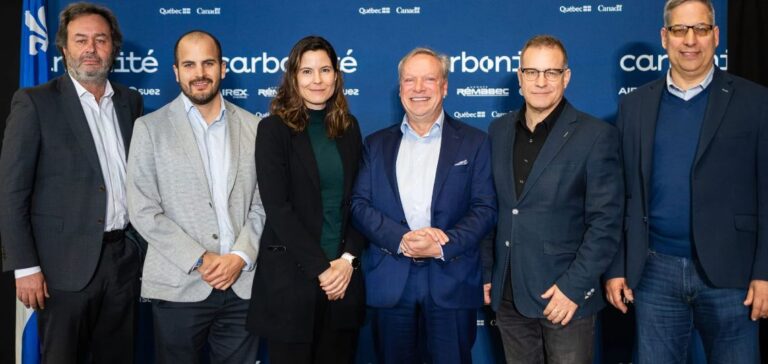Carbonité, Canada’s first industrial-scale biochar plant, has officially opened in Port-Cartier. The site, established as a joint venture between Airex Énergie, Groupe Rémabec and SUEZ, begins operations with an annual production capacity of 10,000 tonnes, with plans to triple that volume by 2026, making it the largest such facility in North America.
Production capacity expected to grow rapidly
The plant processes approximately 58,000 tonnes of forest residues per year sourced from Groupe Rémabec’s operations. This raw material is converted into biochar using Airex Énergie’s patented CarbonFX and DryFX technologies through pyrolysis – a high-temperature carbonisation process without oxygen. At full capacity, the plant is designed to sequester up to 75,000 tonnes of CO2 equivalent per year.
This level of sequestration enables the generation of certified carbon credits. German-based First Climate has already signed an agreement to purchase 36,000 credits over the first three years of operation. Additionally, the production process generates energy-rich by-products, such as steam and pyrolytic oil, which can be used as industrial fuels.
Wide range of industrial applications for biochar
Biochar serves multiple industrial applications. In agriculture, it is used as a soil amendment to improve water retention, fertility, and crop yields. When incorporated into concrete or asphalt, it enhances material performance while reducing their carbon footprint.
Municipalities are also using biochar to build rainwater absorption infrastructure or rehabilitate contaminated soils. This versatility positions biochar as a technical solution for various industries seeking decarbonisation strategies.
Government support for the project
The Carbonité project received over CAD16mn ($11.74mn) in combined financial support from the governments of Québec and Canada. The facility is creating 75 direct and indirect jobs in the Côte-Nord region, revitalising a previously idle industrial site in Port-Cartier.
Airex Énergie and SUEZ aim to build a global biochar production capacity of 350,000 tonnes per year by 2035. This roadmap is based on the gradual international expansion of similar projects.






















